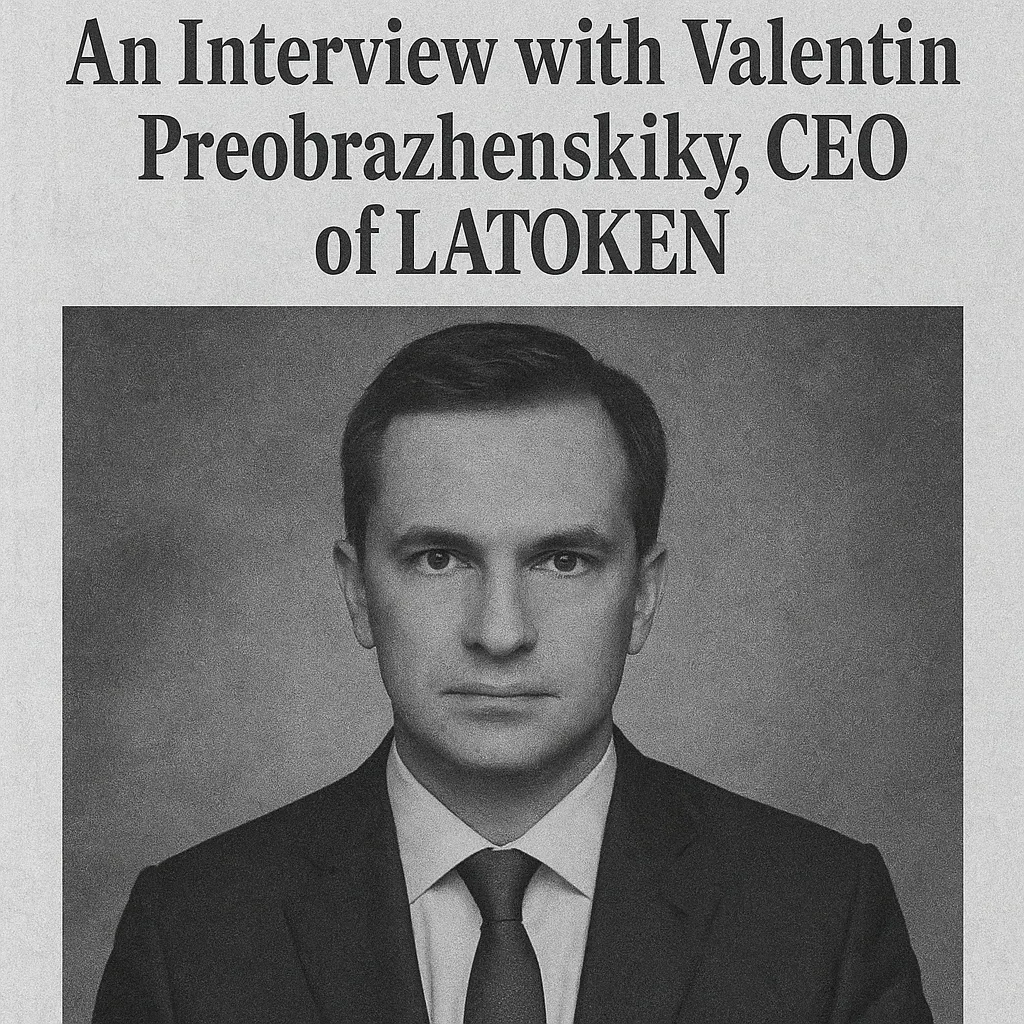
Opening Financial Markets to Everyone: An Interview with Valentin Preobrazhenskiy, CEO of LATOKEN
In an era where financial inclusion remains more aspiration than reality for billions, Valentin Preobrazhenskiy, CEO of LATOKEN, is on a mission to open the gates of capital markets to everyoneand everywhere. His vision is clear: a decentralised, tokenised future where access to investment is no longer the privilege of the elite but a right extended to all.
Bridging the Financial Divide
“Our mission at LATOKEN is to make capital markets accessible to everyone, regardless of their geographic or economic status,” says Preobrazhenskiy, speaking from the exchange’s European base.
Founded in 2017, LATOKEN quickly became one of the most active digital asset exchanges in Europe and Asia, particularly known for its early foray into tokenised real-world assets a concept now gaining global traction. The platform enables users to invest in fractional shares of assets like real estate, fine art, venture equity, and even startup funding rounds.
By allowing retail investors to purchase fractions of these typically inaccessible asset classes, LATOKEN is not just lowering the barrier to entry; it’s reshaping the financial landscape.
The Power of Tokenisation
Central to LATOKEN’s model is tokenisation, converting ownership rights in a physical or traditional asset into digital tokens on a blockchain. These tokens can be traded, split, or stored, offering investors unprecedented flexibility and liquidity.
“Through tokenisation, we’re breaking down barriers and opening up investment opportunities to a broader audience,” Preobrazhenskiy explains. “In a traditional system, to invest in a prime London flat, you’d need millions. With tokenisation, you can invest £100 and still own a verifiable stake.”
This new model doesn’t just improve access; it also creates new liquidity for asset owners, allowing them to sell parts of their holdings without the need for full divestment. Both investors and issuers benefit from this new model.
Security, Compliance, and Credibility
With such rapid innovation comes the need for robust security and regulatory oversight, something LATOKEN doesn’t take lightly.
The platform implements strict Know Your Customer (KYC) and Anti-Money Laundering (AML) checks, ensuring that all users are verified and traceable. The company also collaborates with regulators in multiple jurisdictions to maintain its legal integrity in a highly scrutinised space.
“Trust is paramount in financial services, and we are committed to maintaining the highest standards,” Preobrazhenskiy affirms. “Without trust, there’s no market. That’s why we’ve built LATOKEN on transparency, compliance, and user protection.”
Their recent push to undergo third-party audits and issue monthly transparency reports further reinforces the platform’s institutional credibility, a rarity in an industry still battling reputational setbacks from previous scams and rug pulls.
Expanding Horizons: What’s Next for LATOKEN?
LATOKEN is actively seeking new opportunities. With a user base spanning over 1.5 million traders across 100+ countries, the company is now looking to expand aggressively into Latin America, Southeast Asia, and Africa, regions where access to traditional financial infrastructure remains limited or exclusionary.
The platform is also building out a suite of Web3/DeFi services, including a decentralised launchpad for new projects and tools for automated trading via APIs. In tandem, they're developing financial literacy programmes in emerging markets, including multilingual crypto education hubs and grassroots seminars.
“Opening the markets is just step one,” says Preobrazhenskiy. “Empowering users to use those markets wisely is step two.”
A Movement, Not Just a Platform
When asked whether LATOKEN sees itself as a competitor to traditional exchanges like Nasdaq or Euronext, Preobrazhenskiy shakes his head.
“We’re not here to replace Wall Street. We aim to expand its reach to previously untapped audiences.
He sees tokenisation not as a financial fad but as the inevitable future, where markets are more agile, assets are borderless, and capital flows aren’t bound by geography or privilege.
“We’re building more than a company,” he adds. “We’re building a movement towards financial equality, and we’re doing it one investor at a time.”